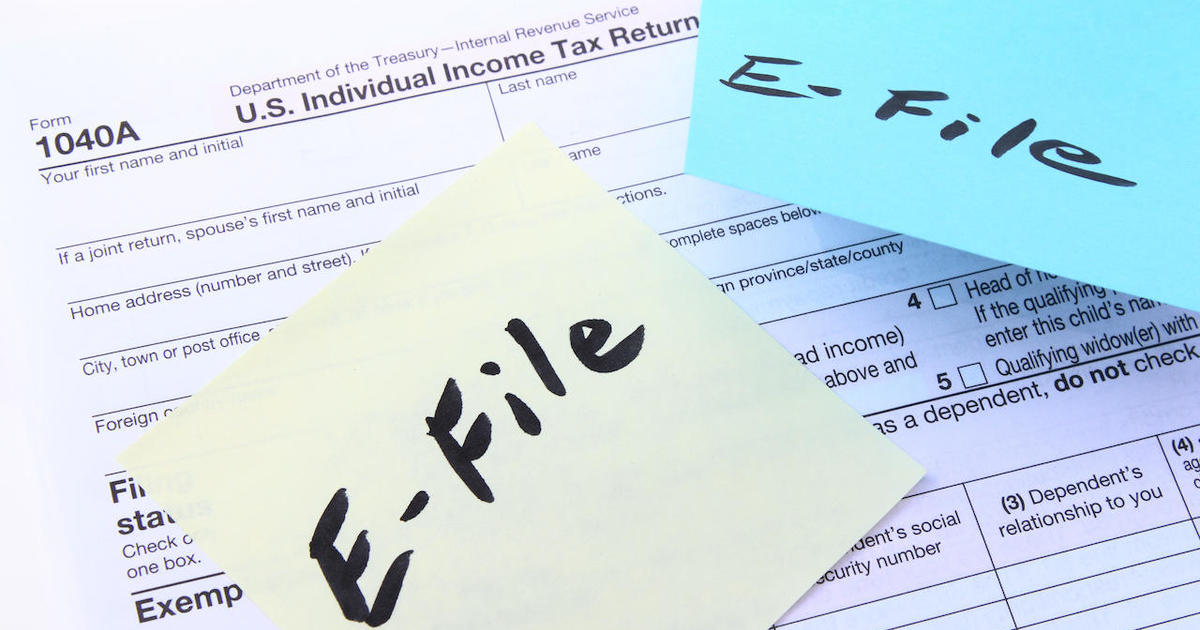Getty Images/iStockphoto
It’s that time of the year again – tax season. The Internal Revenue Service has already started accepting tax returns for the 2022 year, encouraging taxpayers to consider the benefits of filing early.
Filing your taxes doesn’t have to be a headache, especially if you plan to do it online, which most Americans prefer. More than 90% of Americans e-filed returns for Tax Year 2021, eFile.com reported in the fall of 2022, noting that 41% were self-prepared.
However, this year you may notice a smaller refund than usual as many pandemic benefits expire. But don’t worry, there are still several ways to get a bigger tax refund.
If you’re like the majority of Americans and prefer to do your taxes from the comfort of your home, then utilize a tax preparation service. Let a site like TurboTax, H&R Block, eFile.com or others walk you through a step-by-step guide and find ways to save you more money in the process. It could take as little as 15 minutes to finish.
How to file your own taxes
Are you ready to file your taxes? To get started, you’ll need to follow a few simple steps:
- Pick a filing service: Decide how you want to file (here are some free filing sites the IRS recommends)
- Gather documents: Have all the necessary paperwork with you (W-2, 1099 and other tax forms, an ID – like your driver’s license – and any receipts that detail donations or business-related expenses)
- Note applicable deductions: Be prepared to claim all relevant tax deductions and credits
- Determine if you want a standard deduction: Decide if you want a standard deduction or to itemize your returns
- File your forms: Officially file your tax return with the IRS by the deadline on Tuesday, April 18, 2023 (if you can’t make it on time, make sure you request an extension)
As you can see, filing your tax documents can be simple. And if you need help, an e-filing site can connect you with a tax expert to ensure all of your questions get answered.
“Online tax software has streamlined the ability to prepare your tax return by having you input your unique tax information through intuitive question and answer prompts, on-screen guidance, access to a tax professional, and convenient e-filing with the IRS,” TurboTax explains on its website. “Tax software allows you to import your tax information directly onto your return without needing to handle physical forms or manually enter the data.”
Tax preparation checklist
Before you start the process of filing your taxes, it may be wise to create a checklist to avoid any potential roadblocks or delays. TurboTax recommends that its users know these four things before starting the filing process:
- Your personal information (Social Security number, birthdate(s), previous year’s returns, bank account information if you decide to do a direct deposit)
- Your income information (W-2 forms, 1099-C forms, additional income and expenses and other relevant forms – view their full list here
- Any additional income (stocks, gambling earnings, rental real estate, scholarships and awards and more)
- Any income adjustments (Alimony, student loan interest, IRA records, receipts and records of expenses and more)
If you have all of your paperwork ready, get started on filing your taxes now!
When are taxes due?
This year’s tax deadline is Tuesday, April 18. However, there are certain circumstances that could extend that deadline such as Americans who lived abroad or experienced a natural disaster, the IRS says notes. Alabama, California and Georgia storm victims are also being offered an extension until May 15 for certain tax return filings and payments.
As always if you don’t think you can meet the April deadline, then you should request an extension.
Should I file my taxes early?
There are many perks for filing your tax returns early (though you should consider waiting if you received tax rebates last year). The IRS lists at least three reasons to file your taxes early:
- Avoid penalties: If you don’t make the IRS deadline then you could face penalties — a percentage of the taxes you didn’t pay on time,” the IRS explains.
- Avoid losing refunds in the future: “Many people may lose out on their tax refund simply because they did not file a federal income tax return. By law, they only have a three-year window from the original due date, normally the April deadline, to claim their refunds,” the IRS says.
- Protect your credit score: “If the IRS files a tax lien against a taxpayer, it could affect credit scores and make it harder to get a loan,” the IRS notes.
For all the latest Automobiles News Click Here
For the latest news and updates, follow us on Google News.

